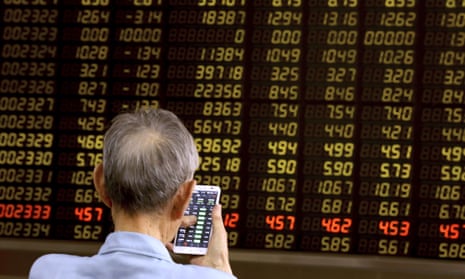What is high-frequency trading?
High-frequency trading is carried out by powerful computers that use complex algorithms to analyse markets and buy or sell shares within seconds. As the name suggests, speed is key and firms can gain an advantage by moving milliseconds earlier than their competitors.
This form of trading was thrust into the spotlight after the release of Michael Lewis’s book Flash Boys in 2014.
What sort of firm carries it out?
Most high-frequency trading is carried out by investment banks and hedge funds using automated trading platforms, but there are also high-frequency trading firms dedicated to the craft. It is not clear which hedge funds were involved in the Bank of England breach.
How do you make money from it?
The algorithms can find new trends across global markets and trade on them automatically before other players have a chance to catch on.
The computers will place large volumes of trades across different markets in order to increase profitability on transactions that would otherwise have very small profit margins (owing to the marginal movements in share or currency markets that the trades are seeking to capitalise on). So size and speed is how they make their money. Better technology can significantly increase profits.
High-speed trading companies have a poor reputation. They are often viewed as rogue market players that try to gain an edge over competitors at any cost. The latest breach is unlikely to improve public perception of a niche industry.
William Wright, the managing director of the thinktank New Financial, said: “At a time when the City of London needs all the help it can get in rebuilding its reputation and restoring trust, this breach will only reinforce many peoples’ negative stereotypes.”
Does it have flaws as an investment method?
High-frequency trading is a controversial model that strips out any human decision-making. With trades taking place in the blink of an eye, it can create flash highs and troughs in the market without warning and sometimes without an obvious reason.
It means one bad trade or a flawed algorithm could end up resulting in millions of pounds of losses within seconds. That kind of market volatility could end up spooking other traders and cause a ripple effect across markets.
What do regulators say about it?
The Financial Conduct Authority has previously raised concerns about high-frequency trading, including the risk that it could put other smaller market players at a disadvantage, and distort markets.
There is also a risk that watchdogs are not able to keep up and detect any potential wrongdoing.
The UK financial regulator confirmed on Thursday that it was looking into the Bank’s case. If the FCA suspects market abuse, all the players could face a potential investigation or fine.
